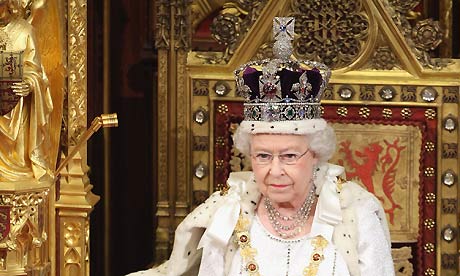JERUSALEM - Israel revoked the residency of nearly 250,000 Palestinians between 1967 and 1994, according to Israeli military figures obtained by a human rights group and shown to AFP on Tuesday.
A letter sent to Israeli NGO HaMoked shows Israel stripped the residency of more than 100,000 people living in Gaza and about 140,000 people living in the West Bank after it occupied the Palestinian territories in 1967. Palestinians lost their residency for various reasons, including tens of thousands for failing to respond to a census.
Others saw their residency revoked after travelling overseas for a number of years and failing to periodically renew their permits.
But rights groups say the renewal process was never explained to many Palestinians who travelled abroad to study or work only to discover they had missed the renewal deadline and therefore lost their residency. And the total number affected by the revocations is believed to be higher than the official figure because entire families were sometimes forced to leave their homes after one member had their residency revoked. Ido Blum, head of HaMoked's legal team, said the policy, which was in force for 27 years until the signing of the Oslo Accords in 1994, was a violation of international law. "It is a clear violation of law for the occupying force to reduce the local population by revoking their residency rights, especially through an administrative procedure," he said.
The policy did not take into account whether the individual affected had residency or nationality elsewhere, and likely left some Palestinians stateless, he said. In 1994, when the Palestinian Authority took administrative control of parts of the West Bank and Gaza under the Oslo agreement, some Palestinians were allowed to return.
Israeli figures show about 12,000 Palestinians were able to get their residency reinstated, but others have long since died without having their residency restored.
While the policy of revoking residency no longer applies to the West Bank and Gaza, it is still implemented in east Jerusalem.
Palestinians unable to provide documents including utility bills or school enrolment forms indicating Jerusalem is their "centre of life" risk losing their permit to stay in the Holy City.
Meanwhile, Israel's mass round-up of mainly African immigrants passed the 200 mark on Tuesday and immigration authorities said that 43 people had agreed to be voluntarily repatriated.
A statement from the Population and Migration Authority said on Tuesday, "66 illegal residents - most of them South Sudanese - were arrested. In addition, another 43 signed a request to leave the country of their own volition."
Immigration officials had earlier put the number arrested on Tuesday morning at 73.
Authority spokeswoman Sabine Haddad told AFP later that some of the 43 volunteers came to immigration offices spontaneously and some were visited in their homes but none who signed were taken into custody.
The 66 who were detained joined 140 people arrested on Sunday and Monday in a series of raids aimed at rounding up and deporting illegal immigrants.
On Sunday, raids saw police round up some 25 immigrants, around a third of them from South Sudan, and the campaign gathered speed on Monday, when 115 people were arrested, many of them in the Red Sea town of Eilat, close to where they crossed into Israel from Egypt.
Those who agree to leave Israel voluntarily will receive free airline tickets and a grant of 1,000 euros ($1,250), but the offer is "only on the table for one week," Haddad said.
Official figures show there are 60,000 Africans living in Israel illegally, most of whom live in run-down neighbourhoods of south Tel Aviv. Interior Minister Eli Yishai estimates that another 6,000 or so may have slipped into the country undetected.
Around a quarter of the total are living in Eilat, where an AFP correspondent saw immigration police stopping African passers-by and asking for identification.
"For the time being, I feel good. I'm not sure they can find anything on us," said 32-year-old Anthony Christiano from South Sudan.
"I don't blame them (the immigration police) - it's the state that wants us out," he told AFP.
Nearby, native-born resident Yusef Khuri sat at a small table gathering signatures to urge the authorities to rid the city of its African immigrants, flanked by posters reading: "Free conquered Eilat."
"They have wrecked our country and have taken over every aspect of our lives," he spat. "They are border jumpers, they should be shot."
Last week, an Israeli court decided that the lives of an estimated 1,500 South Sudanese were no longer at risk in their homeland, clearing the way for their mass expulsion.
It was not immediately clear when the deportations would begin, although a report in Israel's Maariv newspaper suggested that the first flight would leave for Juba, the capital of South Sudan, on Sunday.
The interior minister, who has frequently tried to expel non-Jewish immigrants, sparking accusations of racism, on Tuesday said the raids were "just the beginning."
"At the moment we are permitted only to deport citizens of South Sudan and the Ivory Coast," Yishai wrote in the Israel HaYom newspaper.
"The next stage is the removal from Israel of all the infiltrators from Eritrea and Sudan."
Allowing them to stay would mean "the end of the Zionist dream," he warned.
Rising tensions over the growing number of illegal immigrants entering Israel exploded into violence last month when a protest in south Tel Aviv turned nasty. Demonstrators smashed African-run shops and property, chanting "Blacks out!"
Israel, which reportedly backed South Sudan through its 1983-2005 war with Khartoum, recognised the new nation and established full diplomatic relations with its government shortly after it declared independence in July last year.
The Jewish state does not have relations with Sudan, which it has accused of serving as a base for militants.






